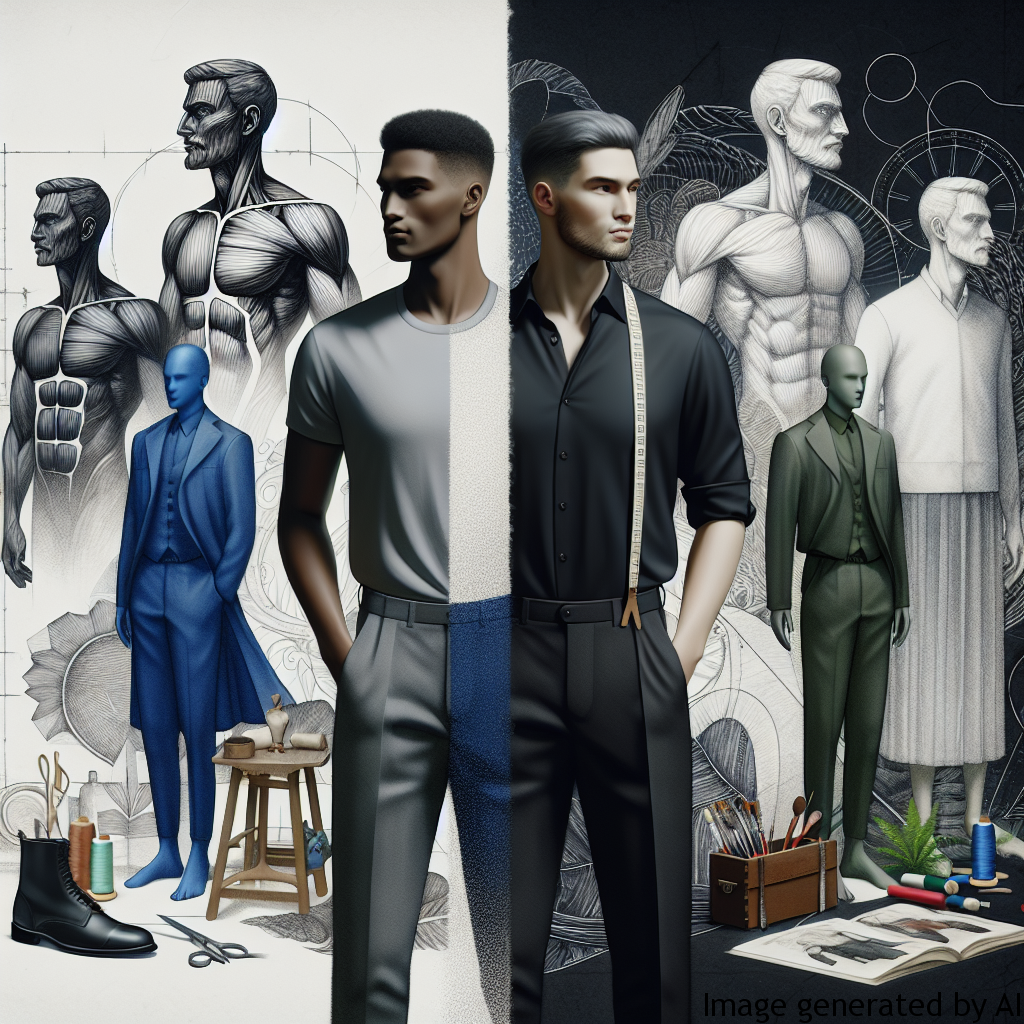The world of fashion and personal style is as much an arena for self-expression as it is a site for the negotiation of societal ideals and expectations. This holds true especially in the case of men’s fashion, which unlike women’s fashion, tends to be underplayed yet is unquestionably essential in defining a man’s identity. The impact of fitness and physique on the perception of men’s fashion represents a complex interplay of gender expectations, psychological health, personal identities, and societal values. This article delves into the intricate world of men’s fashion, shedding light on the influence of body fitness and physique and offering insights on how men can navigate through expectations while maintaining sound psychological health.
Introduction
The oft-repeated “clothes make the man” adage underscores the undeniable impact of fashion on a man’s identity. More than just dressing up, men’s fashion brings to the fore pertinent issues about body image, fitness, and cultural expectations. The way a man dresses up speaks volumes about his self-confidence, personal style, and how he wants the world to perceive him.
Description of Gender Expectations and Their Impact on Men’s Psychological Health
Societal expectations around gender roles play a significant role in shaping men’s choices about their wardrobe and, in turn, their fitness and physique.
The Fitness Ideal
Western society tends to favor men with muscular and athletic builds. This ideal, amplified by the fashion industry, can result in men adopting rigorous fitness regimes, sometimes going to unhealthy extremes, merely to keep up with the societal ideal. Constant pressure to maintain a muscular physique can lead to psychological distress and exacerbate issues like depression, anxiety, and body dysmorphic disorder.
The Thin Ideal
In contrast, the fashion industry often promotes the “thin ideal” for men. Many fashion models embody this ideal, leading some men to pursue dangerous diets and engage in disordered eating habits to achieve and maintain a slim physique. This pressure can create significant psychological burdens, interfere with overall wellbeing, and negatively impact self-esteem.
Examples of How Gender Roles Can Influence Men’s Lives
The societal pressure to conform to particular gender roles can manifest in various spheres of men’s lives, influencing their careers, relationships, and social interactions. Men who feel compelled to embody the ‘muscular ideal’ may find themselves sacrificing a considerable amount of time and energy in the gym, potentially forgoing other important aspects of life such as family time or career advancement. Similarly, the need to adhere to the ‘thin ideal’ can lead men into unhealthy dietary habits, which could result in long-term health repercussions and strain relationships with friends or family who express concern about their well-being.
Tips for Improving Psychological Health with Consideration to Gender Roles
Here are some strategies for maintaining psychological well-being amidst the complex landscape of gender roles and expectations:
- Support Men’s Mental Health – Encourage open conversations about body image, fitness, and health. Remove the stigma around men expressing vulnerability or seeking help.
- Challenge the Ideal – Challenge unattainable body ideals propagated by media and fashion industry. Promote the idea that all bodies are ‘good bodies’.
- Encourage Healthy Behavior – Encourage a holistic approach to health, emphasizing balance, moderation, and the integration of physical and mental health.
Conclusion
Undoubtedly, the connection between fitness, physique, and fashion is profound and influential in the lives of men. While it’s important to acknowledge and understand the impact of gender expectations, men need to remember that personal worth extends beyond physical appearance and societal ideals. By fostering healthy relationships with their bodies, men can navigate the intricate world of fashion while also maintaining their psychological wellness.

